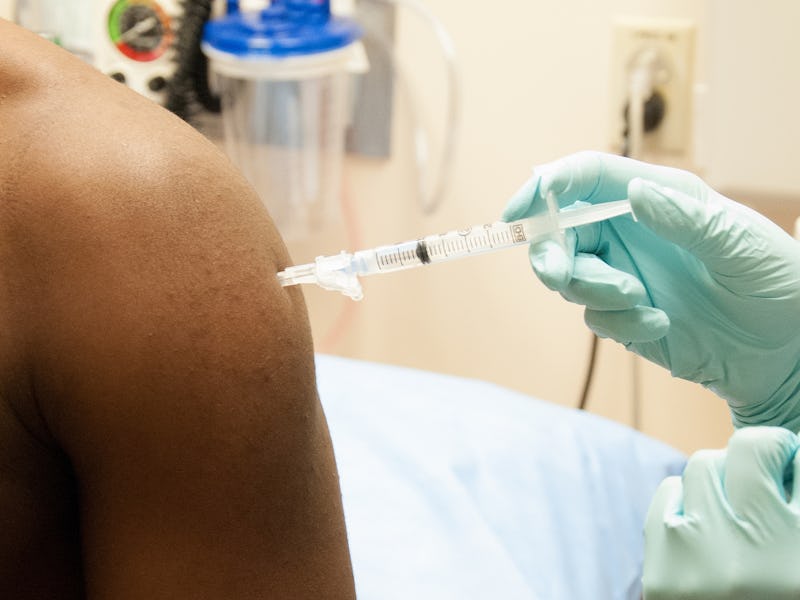Could the 'Leaky' Vaccines We Give Animals Lead to Deadlier Viruses?
Boosting vaccination rates is the only way to beat superbugs.

There’s little question that vaccination is the most effective public health measure we’ve ever taken, saving millions of lives each year. There has been, however, controversy about the types of vaccines that are helpful — and which can potentially be dangerous. Specifically, scientists have raised concerns about “leaky” vaccines, which prevent host infection but don’t block transmission, and their potential for creating conditions for even more dangerous viruses to develop.
A controversial new study from Penn State University is the first to confirm this theory, at least in chickens.
Leaky vaccines prevent animals from getting sick with a virus, but unlike their perfect counterparts, they don’t guarantee viruses won’t be transmitted to offspring. What this creates, at least according to the authors, are conditions that could lead to the evolution of more dangerous viruses.
Here’s a breakdown: If an unvaccinated chicken was infected with a super-deadly strain of the virus, that chicken would soon die, and, without its host, so would the virus. End of story. But if another chicken is vaccinated with a leaky vaccine and contracts the same deadly virus, it won’t get sick and die, but it can still carry the virus — and pass it on to other offspring. If that chain of transmission continues, the virus never really gets a chance to die, and so it has more time to evolve to become even more deadly. Giving a chicken a perfect vaccine — which would be ideal, fittingly — would prevent the chicken from both getting sick and passing on the virus.
Scientists strive to make perfect vaccines, and in many cases a slightly leaky vaccine is the best we can do — and better than no vaccine at all. As Read points out, it doesn’t matter how virulent a specific virus becomes when the entire population is vaccinated. In light of this research, the key is to increase vaccination rates.
Alarming though they might initially seem, these findings don’t offer any real grist for the anti-vaxx crowd. Instead, they drive home how important it is to vaccinate — and offer guidance to those developing the next generation of vaccines.